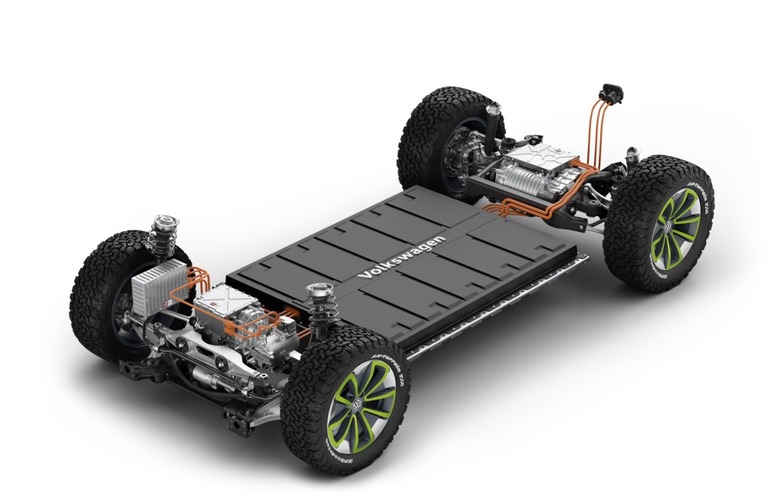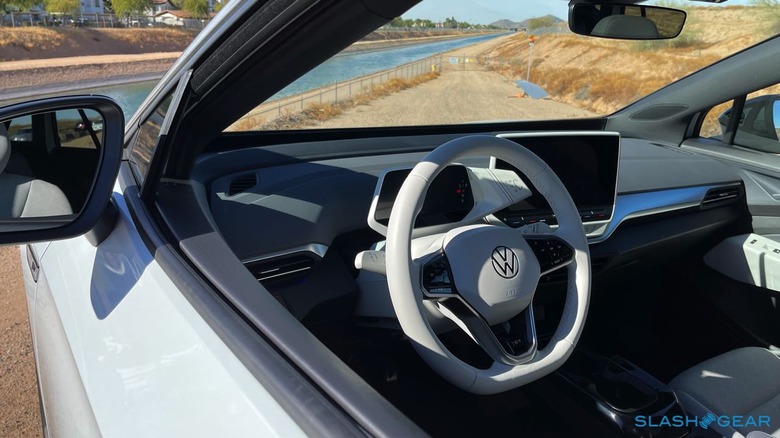VW Just Detailed Its Plans For Cheaper EVs And Easier Charging
Volkswagen has detailed its ambitious EV goals for the next decade, teasing more affordable electric cars and broader availability of chargers for models like the VW ID.4. The automaker set out its technology roadmap for batteries and charging at VW Power Day today, looking to address some of the key concerns and tech challenges between now and 2030.
It comes as the first vehicles from the Volkswagen Group to use its MEB platform begin to reach the North American market. Designed with electric models in mind from the outset, MEB is set to be used across everything from urban runabouts such as the ID.3 already on sale in Europe, to the new ID.4 crossover, and beyond into large SUVs and minivans.
It's built with flexibility in mind, with the option of front-, rear-, or all-wheel drive configurations, a variety of body sizes and styles, and support for different battery capacities. Batteries remain one of the most expensive components in any EV, not to mention one of the most contentious when it comes to providing realistic range without automakers running into excessive price, weight, or production bottlenecks. A sizable part of Power Day 2021, then, was devoted to how VW will handle that challenge.

"We aim to reduce the cost and complexity of the battery and at the same time increase its range and performance," Thomas Schmall, Volkswagen Group Board Member for Technology, said at the event. "This will finally make e-mobility affordable and the dominant drive technology."
To do that, VW aims to operate six factories for batteries in Europe by the end of this decade. They'll have a total production capacity of 250 GWh, the automaker says, with the first being in Salzgitter and the Swedish city of Skellefteå. More sites will be identified later on, along with production partners.
What they'll be building, meanwhile, will also be seeing some changes. VW plans to switch to a so-called unified cell, which it aims to put into production by 2023; the same design will also make transitioning to solid state cells more straightforward. By 2030, VW expects 4 out of 5 EVs produced by the VW Group as a whole to be using the unified cell design.
The impact will be felt most at the affordable end of the scale. "Volkswagen is thus aiming to gradually reduce battery costs in the entry-level segment by up to 50 percent and in the volume segment by up to 30 percent," the automaker said today. "On average, we will drive down the cost of battery systems to significantly below €100 ($116) per kilowatt hour," Schmall suggests.

VW is also looking to how it can make better use of recycling, suggesting that up to 95-percent of raw materials could eventually be recovered. The new battery facilities, meanwhile, will run on electricity from renewable sources.
As for charging, there'll be more investment in Europe, China, and North America. Electrify America, for example, aims to have 3,500 fast chargers available in the US and Canada by the end of the year. In Europe and the UK, VW is collaborating with BP to put around 8,000 DC fast chargers – capable of 150 kW – in service stations, primarily in Germany and the UK.
It's not just putting power into an EV that VW is looking at. The automaker also plans to enable bi-directional power on MEB models from 2022, where electric vehicles will be able to act as temporary storage for power during periods of excess, and then supply it back to homes or the grid when it's in demand. There'll be new VW chargers that support that, too, along with versions scaled to suit businesses.
